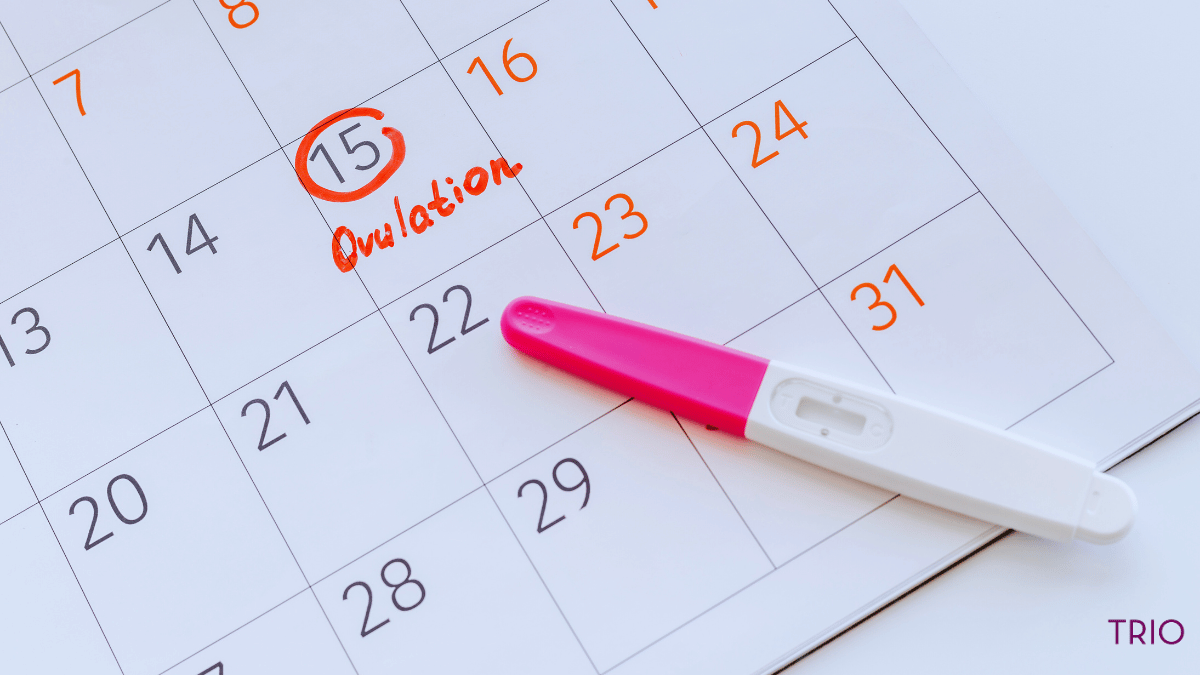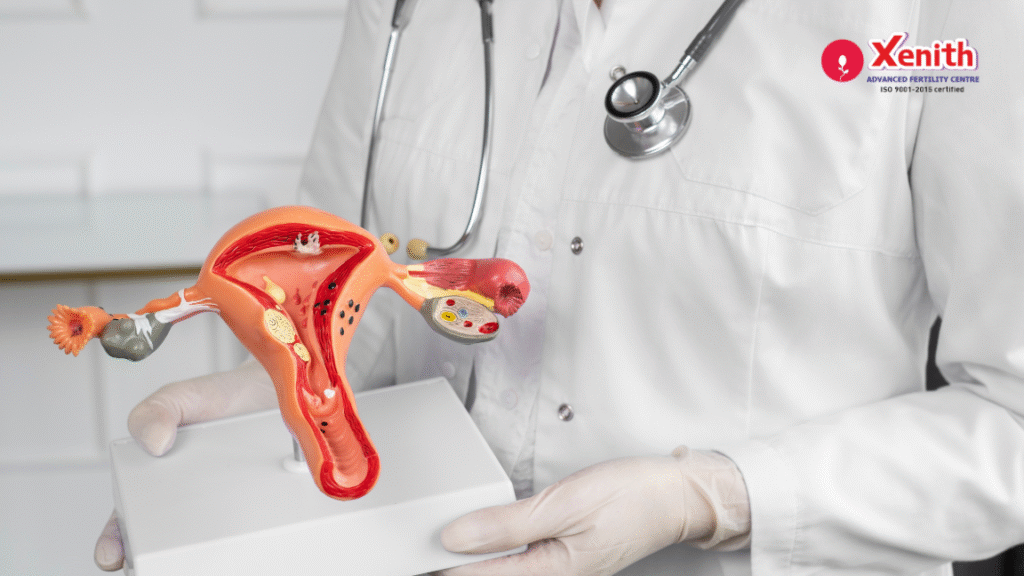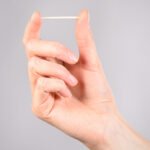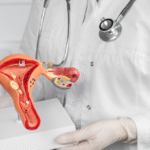Now Reading: How to Track Your Menstrual Cycle for Conception Success
-
01
How to Track Your Menstrual Cycle for Conception Success
How to Track Your Menstrual Cycle for Conception Success

Tracking your menstrual cycle can aid conception success. It helps identify fertile days.
Knowing your cycle can increase your chances of getting pregnant. Understanding your menstrual cycle is crucial for conception. Each cycle offers clues about your fertility window, the best time to conceive. By observing patterns in your cycle, you can pinpoint when ovulation occurs.
This knowledge empowers you to plan for pregnancy more effectively. Monitoring your cycle also highlights any irregularities that may need medical attention. Many tools and methods exist to help track your cycle. These range from simple calendars to advanced apps. Choosing the right method can make tracking easier and more accurate. This blog will guide you through the steps to successfully track your cycle. Let’s explore how this can enhance your conception journey.
Importance Of Tracking
Tracking your menstrual cycle is a powerful tool for anyone trying to conceive. By understanding your cycle, you can pinpoint the most fertile days and improve your chances of getting pregnant. Many people who have struggled with conception find that simply tracking their cycle provides clarity and hope. Imagine knowing exactly when your body is ready—it’s empowering, isn’t it?
Benefits For Conception
Knowing your cycle can be a game-changer in your conception journey. It helps you identify the window when you’re most likely to conceive. This way, you can time intercourse for maximum effectiveness. Regular tracking can reveal patterns, like short cycles or irregularities, which might be worth discussing with your doctor. It’s not just about timing; it’s about understanding your body’s unique rhythm.
Understanding Your Cycle
Your menstrual cycle isn’t just about periods; it’s a monthly map of your body’s reproductive journey. Typically, it lasts between 21 and 35 days, but yours might be different. You might find that your cycle has a predictable pattern or that it changes with stress or lifestyle. Recognizing these patterns can help you plan more effectively. You could even consider maintaining a cycle journal to track your emotional and physical symptoms. How might this insight change your approach to conception?
By tracking your cycle, you equip yourself with knowledge that can make conception less of a guessing game. What are some unexpected ways tracking has helped you? Your story might inspire others on their journey to parenthood.
Cycle Phases
Understanding the phases of your menstrual cycle can aid conception. Each phase plays a crucial role. Recognizing these can enhance fertility awareness. Let’s explore the phases.
Menstrual Phase
This phase begins with bleeding. It lasts from three to seven days. The body sheds the uterine lining. Hormone levels drop, preparing for a new cycle. It’s a time to track changes in flow and duration. These details are vital for cycle monitoring.
Follicular Phase
After menstruation, the follicular phase starts. It extends until ovulation. The pituitary gland releases follicle-stimulating hormone. This helps follicles in the ovaries to mature. Estrogen levels rise, thickening the uterine lining. This phase is crucial for egg development.
Ovulation Phase
Ovulation occurs around the middle of the cycle. A mature egg is released from the ovary. This phase lasts one to two days. Hormone levels peak during ovulation. It’s the best time for conception. Tracking basal body temperature can help pinpoint ovulation.
Luteal Phase
The luteal phase follows ovulation. It lasts around 14 days. The corpus luteum forms and produces progesterone. This hormone supports the uterine lining. If fertilization doesn’t occur, progesterone levels drop. The cycle then starts anew. Monitoring signs can indicate cycle regularity.
Methods Of Tracking
Tracking your menstrual cycle can boost conception chances. Use apps, calendars, or basal body temperature charts. Understanding your cycle aids in identifying fertile days, enhancing the likelihood of pregnancy.
Tracking your menstrual cycle is key for conception success. Understanding your cycle can help pinpoint the best time for conception. There are several methods to track your menstrual cycle. Each method provides unique insights into your fertility window. Let’s explore some effective methods for tracking your cycle.Calendar Method
The Calendar Method is simple and straightforward. Mark the first day of your period on a calendar. Count the days until your next period starts. This gives you the length of your cycle. Most cycles last between 28 to 32 days. Track for several months to find a pattern. This method helps predict your ovulation day.Basal Body Temperature
Basal Body Temperature, or BBT, involves daily temperature checks. Measure your temperature every morning before getting out of bed. Use a special BBT thermometer for accuracy. Record the temperatures on a chart or app. A slight temperature rise indicates ovulation. Tracking BBT can predict your most fertile days.Cervical Mucus Observation
Cervical Mucus Observation is natural and informative. Check your cervical mucus daily. Before ovulation, mucus is clear and stretchy. This is the best time for conception. After ovulation, mucus becomes thick and sticky. Keep a record of your mucus changes. This method helps identify your fertile window effectively.
Using Apps And Tools
Apps and tools simplify tracking menstrual cycles for conception success. They help monitor ovulation days and fertility windows. Easy-to-use interfaces provide detailed insights, supporting informed decisions for planning pregnancy.
Tracking your menstrual cycle is a key part of increasing your chances of conception success. With the advent of digital technology, using apps and tools has become a popular choice for many trying to conceive. These tools offer convenience and accuracy, making it easier for you to understand your body’s signals. Imagine having a reliable assistant that reminds you of your fertile days and helps you plan accordingly. Let’s dive into how these apps and smart devices can be your best allies on this journey.Popular Tracking Apps
Gone are the days of manually marking your cycle on a calendar. Today, numerous apps are available that can do the heavy lifting for you. Consider apps like Flo, Clue, and Ovia, which have become favorites among women worldwide. They not only track your cycle but also predict ovulation days with remarkable precision. These apps often come with features that allow you to log symptoms, moods, and daily notes. This personalized data can give you deeper insights into your patterns. Have you ever wondered if your mood swings are related to your cycle? These apps can help you answer those questions. Moreover, many apps offer reminders and tips tailored to your cycle phase. This means you can receive notifications about the best time to try for a baby, making your planning process more strategic. You can even share your data with a partner, making it a team effort.Smart Devices And Wearables
In addition to apps, smart devices and wearables are revolutionizing how we monitor our bodies. Consider using devices like Ava or Tempdrop, which track physiological signals such as temperature and heart rate. These devices provide real-time data that can indicate your fertile window with precision. Imagine wearing a bracelet at night that tracks your body temperature and syncs with your phone in the morning. Such devices can offer insights that are often missed in traditional methods. They can detect subtle changes in your body that signal ovulation, even before you feel it. Some wearables come with additional features, like sleep tracking and stress monitoring. This holistic approach allows you to understand how lifestyle factors impact your fertility. Have you ever considered how stress could be affecting your cycle? These devices can offer valuable insights. Using these tools can make the journey to conception more informed and less stressful. Why not try one of these modern methods and see how it can aid your path to parenthood?Signs Of Ovulation
Understanding the signs of ovulation can boost your chances of conception. During ovulation, your body gives various clues. Recognizing these signs helps you pinpoint fertile days. This knowledge is crucial for those aiming to conceive.
Physical Symptoms
Ovulation often brings noticeable physical symptoms. You may experience mild pelvic pain. This is called mittelschmerz. Some women feel a slight twinge or ache. Cervical mucus changes, becoming clear and stretchy. This egg-white consistency indicates fertility. Increased libido is another common sign. You might feel more energetic or lively. Some women notice breast tenderness or bloating. These symptoms signal the body’s preparation for potential conception.
Hormonal Changes
Hormonal shifts play a key role in ovulation. Estrogen levels rise before ovulation. This hormone thickens the uterine lining. After ovulation, progesterone levels increase. Progesterone supports a potential pregnancy. These hormonal changes can affect mood. Some women feel more emotional or sensitive. Tracking these changes helps in understanding the cycle better. Hormone tracking kits are available. They help monitor levels for precise ovulation detection.
Optimizing Fertility
Optimizing fertility is crucial for those planning to conceive. Understanding your menstrual cycle can enhance your chances. Knowing your body’s signals helps in pinpointing fertile days. It involves timing intercourse and considering lifestyle factors.
Timing Intercourse
Timing intercourse around ovulation increases conception chances. Ovulation occurs mid-cycle for most women. This is the time when an egg is released. Tracking your cycle helps identify this fertile window. Use ovulation predictor kits for accuracy. Intercourse every other day in this period is beneficial. It ensures healthy sperm presence when the egg is released.
Lifestyle Factors
Lifestyle choices impact fertility significantly. A balanced diet supports reproductive health. Include foods rich in vitamins and minerals. Regular exercise maintains a healthy weight. Excess weight can affect hormone balance. Avoid smoking and limit alcohol consumption. Both negatively affect fertility. Stress management is also important. High stress can disrupt the menstrual cycle.
When To Seek Help
Understanding your menstrual cycle is crucial for conception success. But sometimes, tracking alone isn’t enough. Knowing when to seek help can make a difference. If you’re trying to conceive without results, it might be time to consult an expert.
Consulting A Specialist
A fertility specialist can offer guidance. They listen to your concerns. They evaluate your history. This helps them create a tailored plan. A specialist can identify underlying issues. They offer treatments and options for you. Consulting a specialist early can save time.
Fertility Tests And Assessments
Fertility tests provide insights. Blood tests check hormone levels. Imaging tests assess reproductive organs. These tests can reveal potential problems. Assessments cover both partners. This ensures comprehensive understanding. Results guide the next steps. Tests are crucial for informed decisions.

Common Tracking Challenges
Tracking your menstrual cycle can be challenging for conception success. Some women face irregular cycles or question the accuracy of tracking methods. Understanding these challenges helps improve tracking efforts. Let’s delve into common challenges faced during menstrual tracking.
Irregular Cycles
Irregular cycles make tracking difficult. Many women experience cycle variations. This can lead to confusion and frustration. Some cycles are shorter, while others are longer. This irregularity affects predicting ovulation. Knowing your body’s patterns is crucial. A healthcare professional can offer guidance.
Accuracy Of Methods
Tracking methods vary in accuracy. Apps, thermometers, and calendars are popular. Each method has its strengths and weaknesses. Apps rely on data input. Incorrect data skews results. Thermometers track basal temperature. Fluctuations can mislead results. Calendars assume regular cycles. This doesn’t account for irregularities.

Frequently Asked Questions
How To Track Your Cycle For Conception?
Track your cycle by noting the start date of your period. Identify ovulation using basal body temperature or ovulation kits. Monitor cervical mucus changes for fertility signs. Utilize cycle tracking apps for accurate predictions. Keep a diary for patterns and consult a healthcare professional for personalized advice.
How Do I Calculate My Cycle To Get Pregnant?
Track your menstrual cycle start date monthly. Ovulation typically occurs 14 days before your next period. To calculate, subtract 14 days from your cycle length. Aim for intercourse during the fertile window, which is five days before ovulation and the day of ovulation, to maximize chances of conception.
How Many Days After Your Menstrual Cycle Are You Most Fertile?
The most fertile days typically occur 12 to 16 days before your next period. This is during ovulation. Track your cycle regularly to identify these days. Understanding your cycle can help maximize fertility chances.
Is There A Period Tracker App For Trying To Conceive?
Yes, there are period tracker apps designed for those trying to conceive. Apps like Flo, Ovia, and Clue offer features to track ovulation, fertility windows, and menstrual cycles. These tools can help you better understand your reproductive health and improve your chances of conception.
Conclusion
Tracking your menstrual cycle aids conception. It’s simple and effective. Understand your body’s signals. Mark important dates on a calendar. Use apps for reminders and insights. Notice patterns in your cycle. Regular tracking improves accuracy. Share observations with your doctor.
This helps in planning. Stay informed and aware. Keep a journal of symptoms. This can provide helpful clues. Patience and consistency are key. Every cycle brings new knowledge. Learn and adapt as needed. This journey is personal. Celebrate small victories along the way.
Your efforts can lead to success.




















